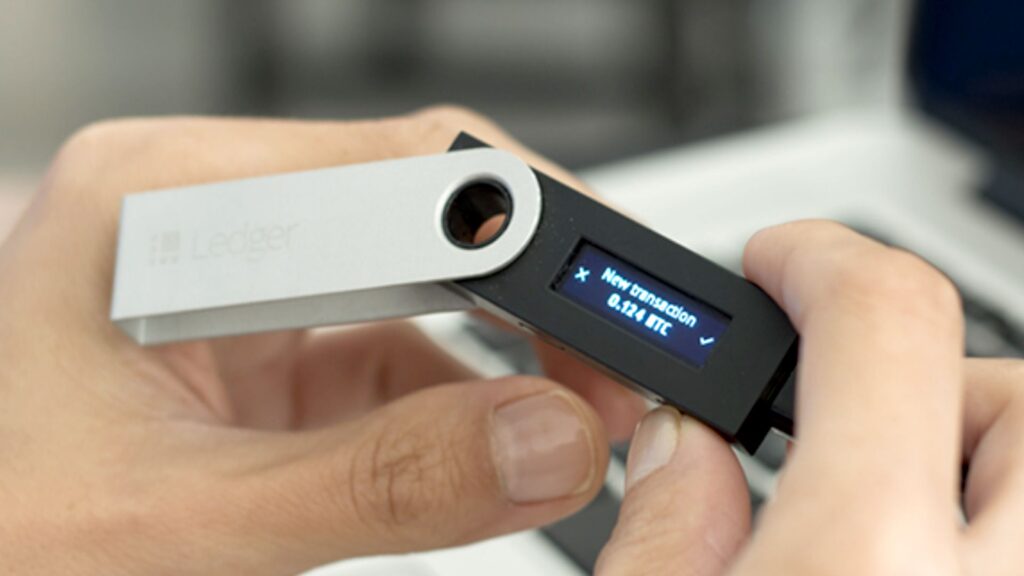Investing in bitcoin, especially for novices, is quite difficult. The terms that are flung around may appear to be the same. Individuals can make costly blunders if they do not receive help or conduct study. Investors in cryptocurrency must pick between a wallet and an exchange. Both will allow you to store your cryptocurrency, but each has its own set of perks and downsides.
Let’s look at the differences between a bitcoin wallet and a cryptocurrency exchange.
What are Cryptocurrency Wallets?

If you want to store, use, sell, or buy cryptocurrencies, you’ll need a cryptocurrency wallet. Cryptocurrency uses encryption technologies to secure transactions. As a result, it necessitates the usage of both private and public keys. But what are they, exactly?
A public key is akin to an account identifier for a person. In contrast, a private key is similar to an ATM. It is a password necessary to use the cryptocurrency. To send the cryptocurrency, the sender will need the receiver’s public key, and the receiver will be able to access and use the cryptocurrency using the private key.
To avoid fraudulent acts such as hacking and cryptocurrency theft, a private key must be secured. Bitcoin wallets are used to hold the keys that are utilized to conduct cryptocurrency transactions.
Crypto wallets show the amount of cryptocurrency in a user’s wallet, allowing them to keep track of their balance.
What Are Cryptocurrency Exchanges?

A cryptocurrency exchange is a trading platform where you can buy or sell cryptocurrency. It can be traded with electronic money units, digital assets, or fiat currency. For example, dollars, euros, yen, and yuan are currencies of the ‘traditional market.’ Any electronically-existing assets like domain names, files, virtual property, or digital money are digital assets that can be used to trade cryptocurrency.
A cryptocurrency exchange functions similarly to a brokerage, and you can fund your account with bank transfers, wire transfers, and other typical deposit methods. However, you will almost always have to pay a fee for this service.
When a trader wishes to trade between cryptocurrencies, they must pay a currency conversion fee, which is comparable to what institutional banks charge when they transfer money between countries.
A traditional bitcoin exchange runs 24 hours a day, which means it does not close. The anonymity aspect is one reason people enjoy them. No one knows who the cryptocurrency exchange’s buyers and sellers are.
Visit crypto-genisus.com/pl/login to start trading cryptocurrency.
What are the functions of cryptocurrency wallets?

Crypto wallets are used to store, send, and receive cryptocurrencies, unlike cryptocurrency exchanges, which allow users to purchase and sell cryptocurrencies with real money or fiat currencies like USD and EUR (some crypto wallets may have in-built exchanges for conversion of cryptocurrencies to real money and vice versa).
When you purchase a cryptocurrency on an exchange, it is automatically kept in your account. However, storing bitcoins in the exchange’s wallet is not suggested because the exchange would control your private key rather than you.
As a result, you can move it to your own crypto wallet to take ownership of the coins you purchased. To do so, first, create a public key and private key in your wallet, then use the public key address to move your cryptocurrency from the exchange to your wallet.
After that, you may quickly conduct transactions and send cryptocurrency to other accounts using their public keys, as well as receive cryptocurrencies by sharing your public key with the sender.
The public key functions similarly to an email address since it serves as an identification for a particular account. The private key, on the other hand, will function as a password for your personal email account. Because private keys are used to obtain access to your cryptocurrency, it is critical to maintaining them safe and hidden in order to avoid hacking, theft, and other threats.
What are the functions of cryptocurrency exchanges?

Cryptocurrency exchanges are similar to traditional stock exchanges in several aspects, with the exception of how traders profit. Traders purchase and sell assets on a stock market to profit from shifting rates, but traders on crypto exchanges utilize cryptocurrency pairs to profit from highly fluctuating currency rates.
Before new users can begin trading on cryptocurrency exchanges (particularly centralized exchanges), they must first complete a registration process. Levels of verification may differ – in some circumstances, simply confirming an email address would be enough, while in others, applicants will be required to upload a passport photo. The KYC checks ensure that crypto firms adhere to anti-money laundering regulations.
What is a Crypto Wallet’s Purpose?
A crypto wallet is a digital ledger that is intended to be used for the following purposes:
- Storage for a long time
- High-level security
- Simple to use
When it comes to keeping your cryptocurrency safe, a wallet is preferable to an exchange. Because wallets are subject to failure, especially when stored on a flash or external device, you’ll want to backup your private keys somewhere accessible.
What is an Exchange’s Purpose?
The exchange comes with an integrated wallet. These wallets are easy to use when you use them with the exchange’s trading services.
However, because your private key will be stored on the exchange, you will be putting your security at risk. You’d lose access to your crypto if the exchange went offline overnight, and there’d be no way to get it back unless it came back online.
Conclusion

A cryptocurrency wallet is a tool that allows a user to store all of their cryptocurrency in one place. A cryptocurrency exchange, on the other hand, is a website or service that allows users to sell or purchase digital money, as well as convert fiat currency to digital currency. It is entirely up to you whether you want to keep your Bitcoin on an exchange or in a wallet.
If the exchange is hacked or the proprietors trade the money and flee, you could lose all your cryptocurrency funds. Furthermore, maintaining your digital money will require you to deal with difficulties like backup, security, and wallet management. Always weigh the dangers before choosing between a wallet and an exchange.
